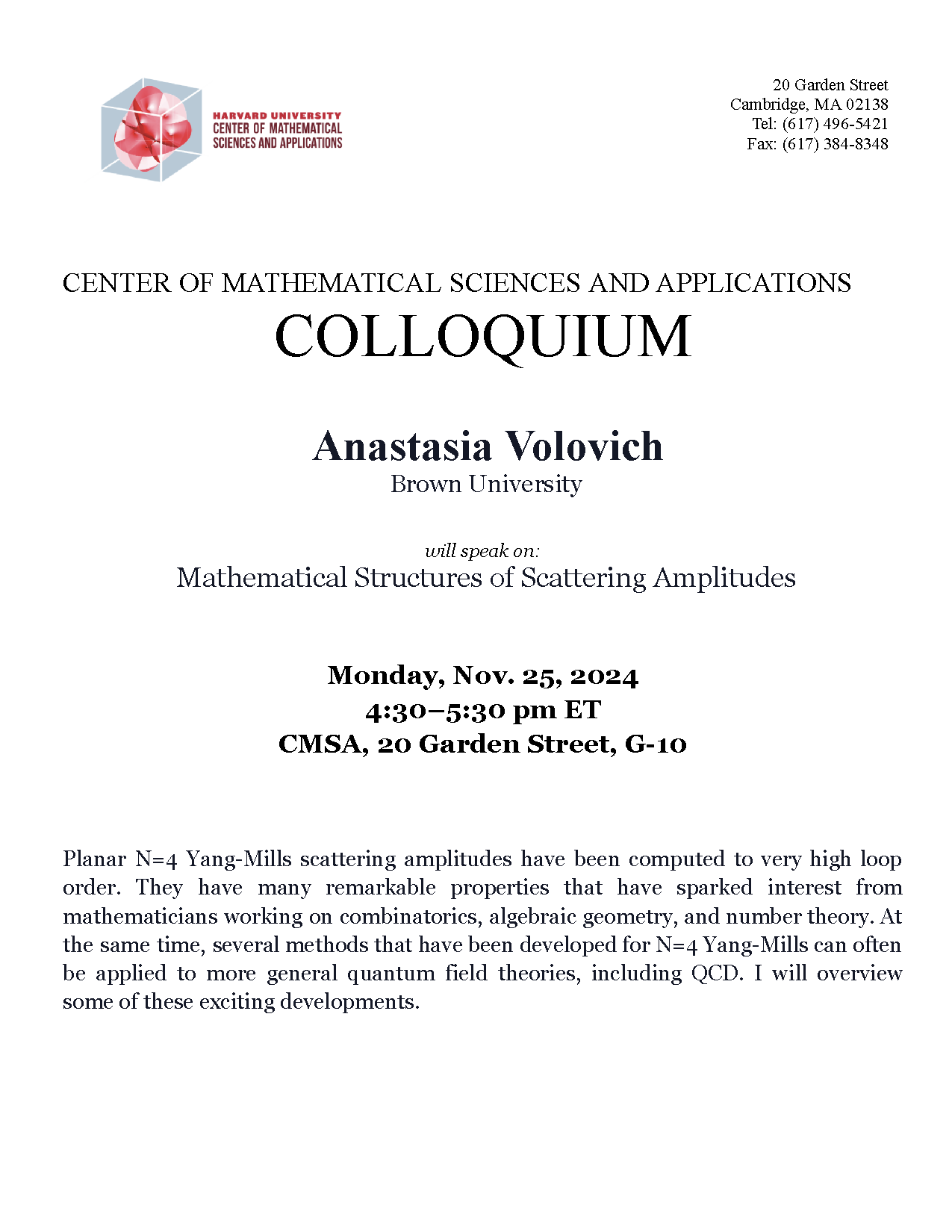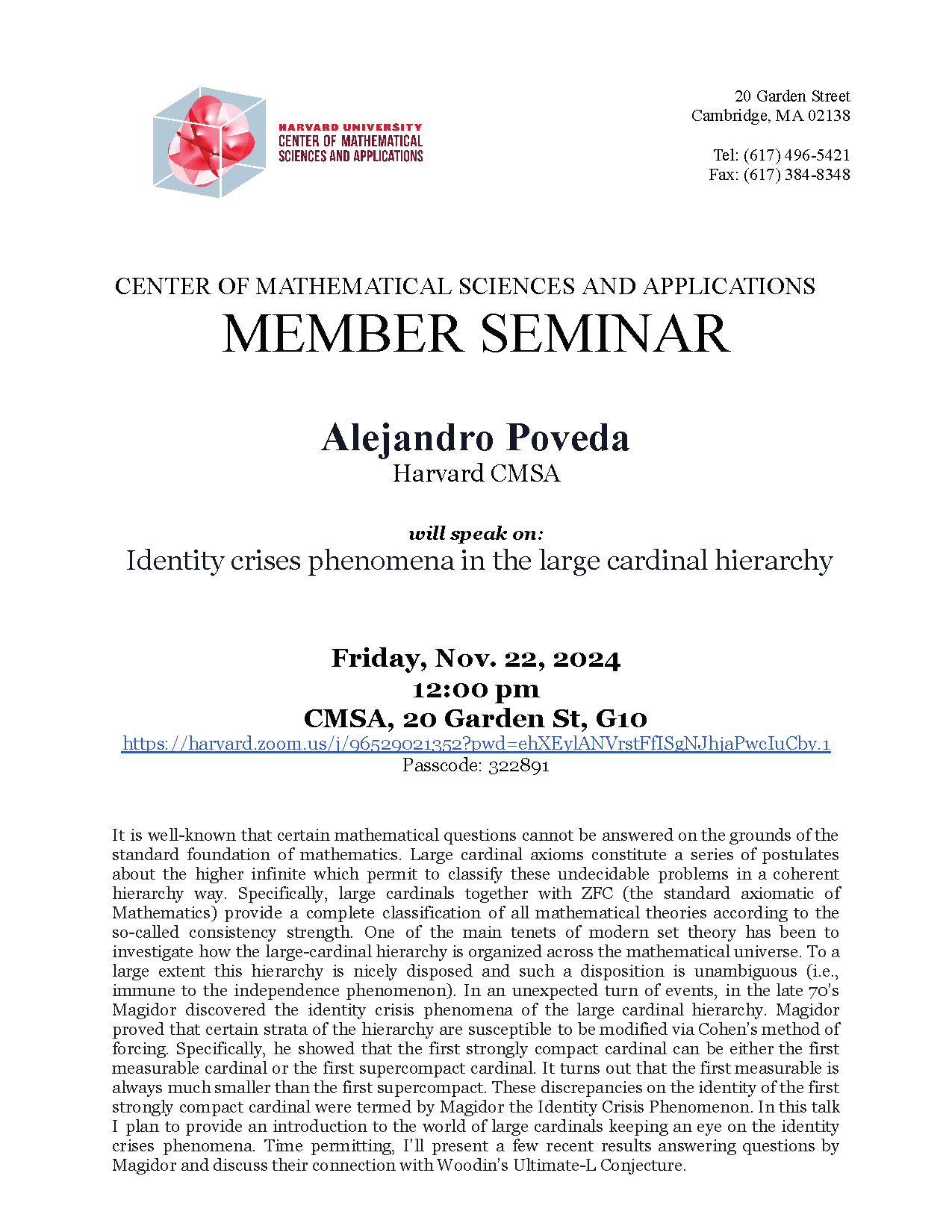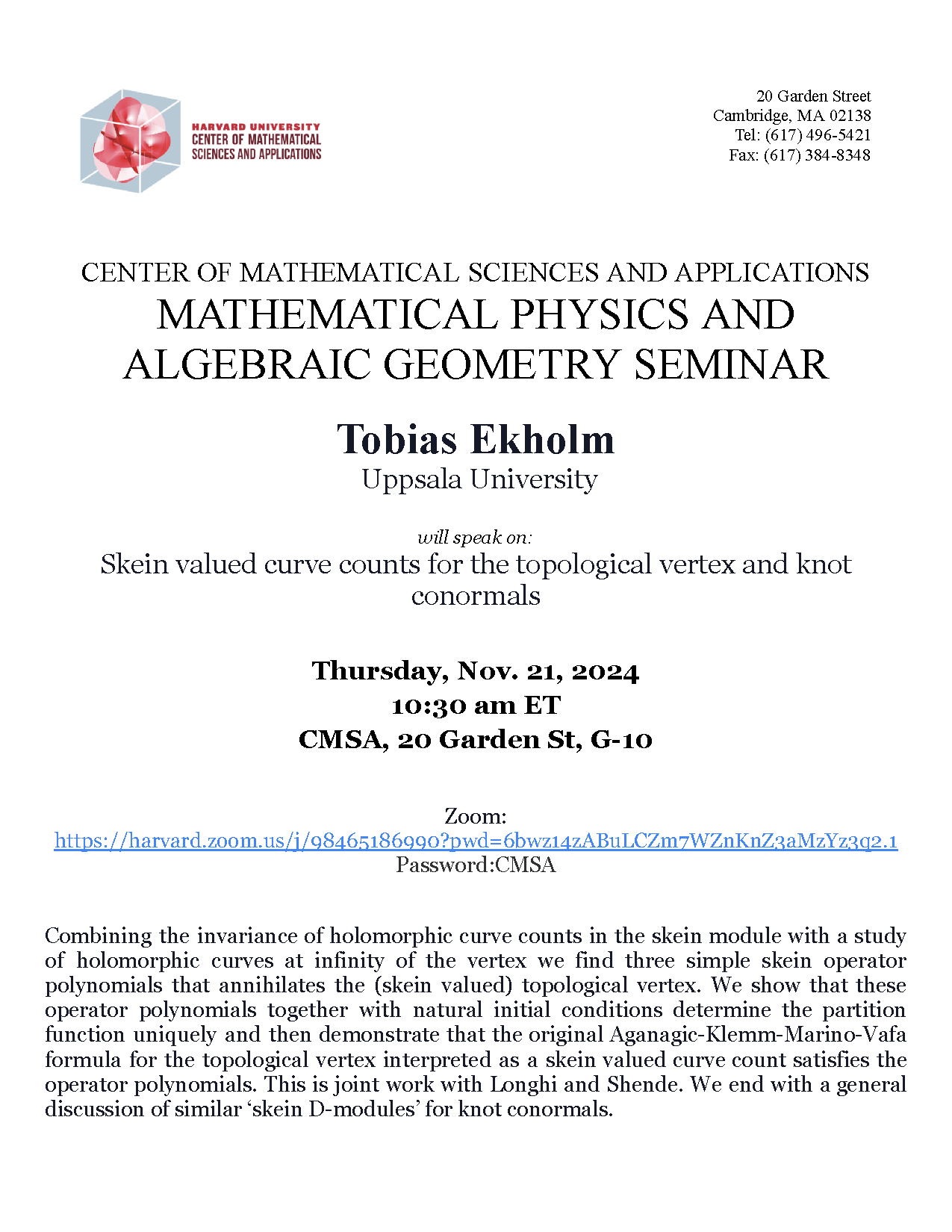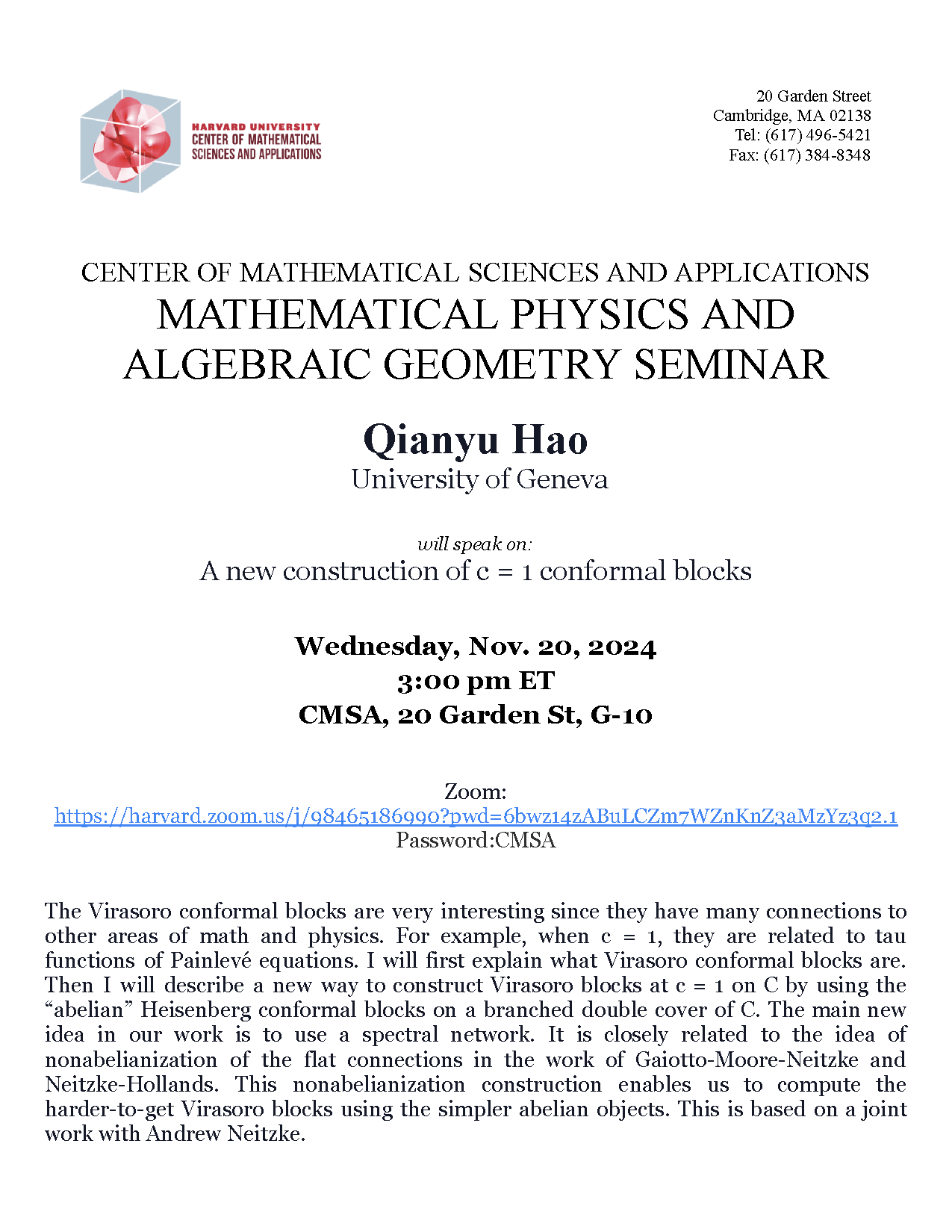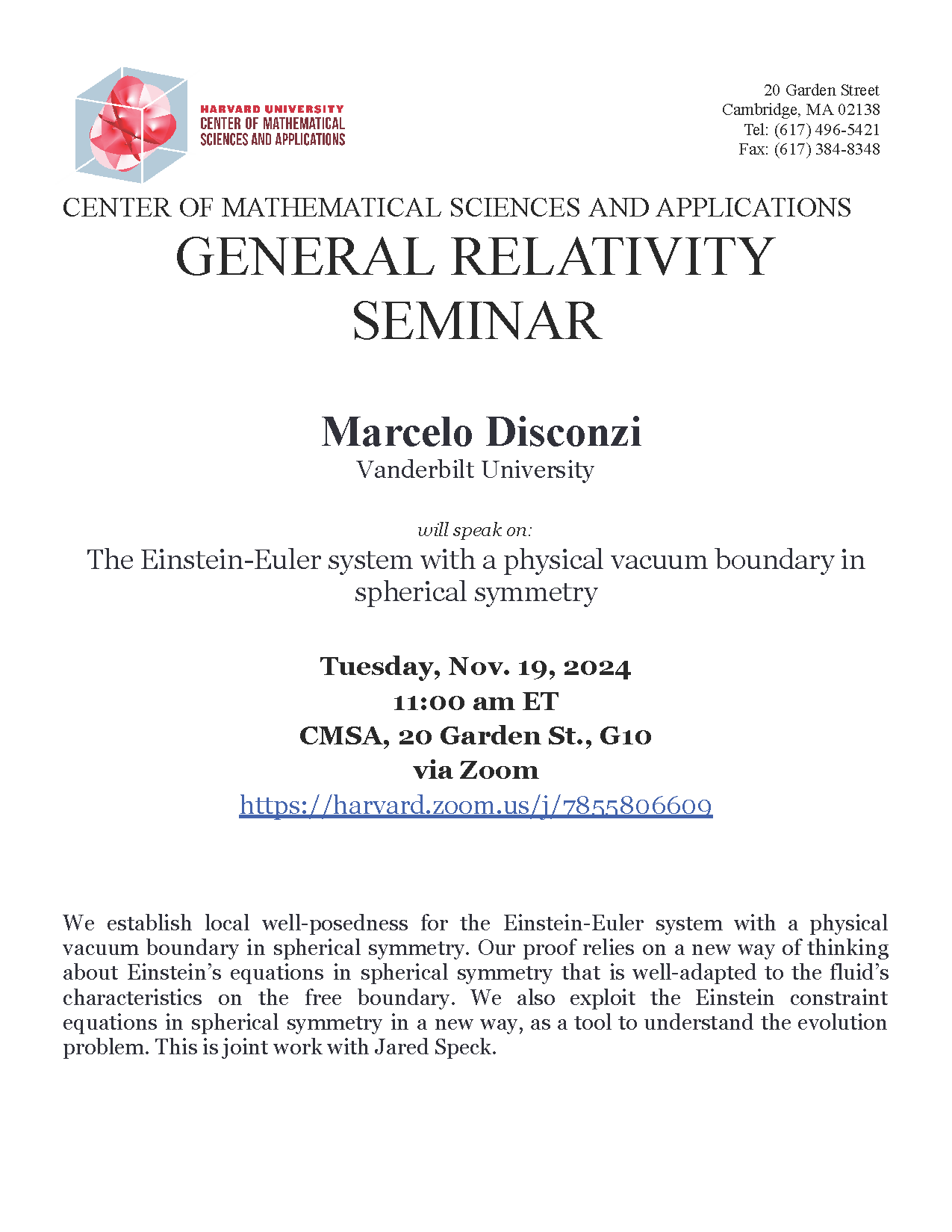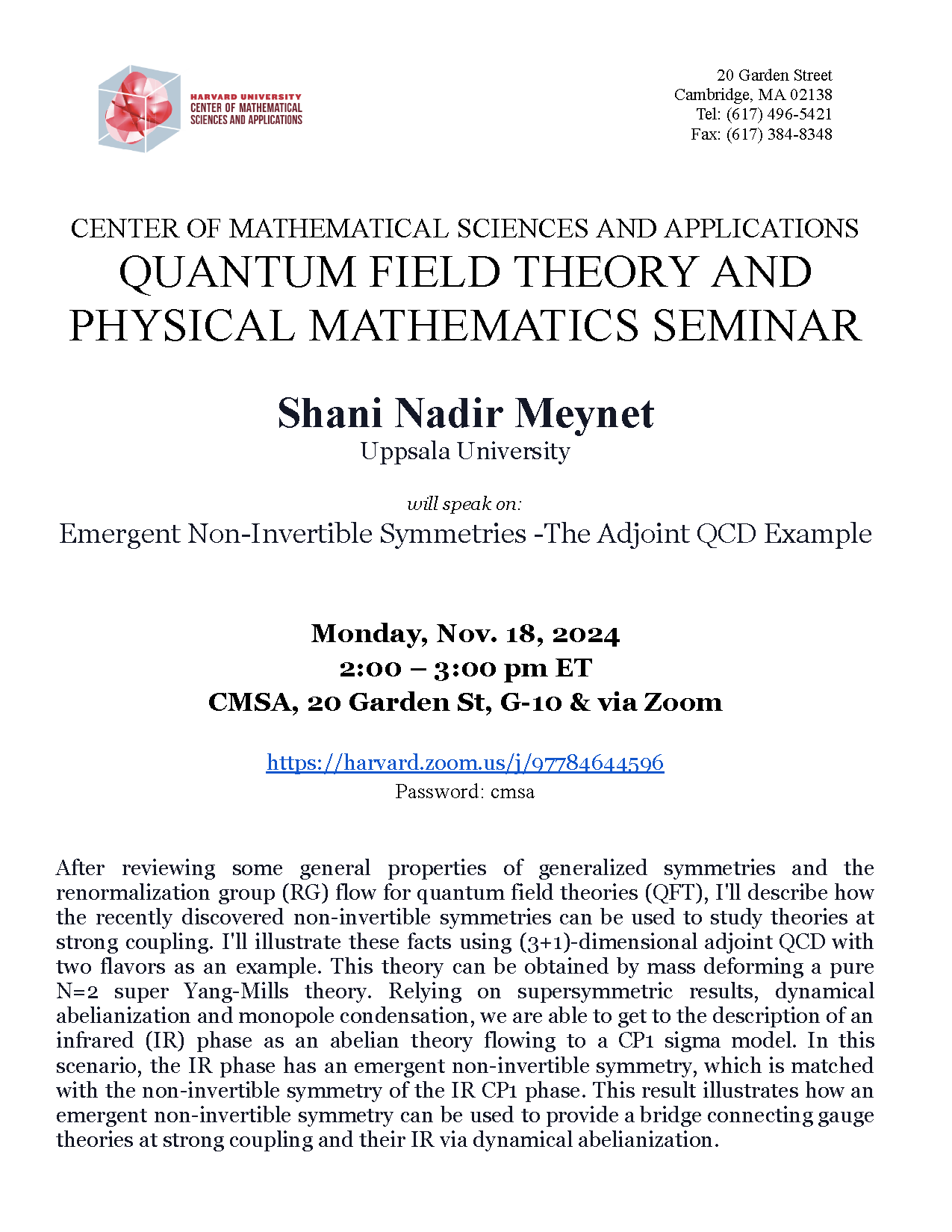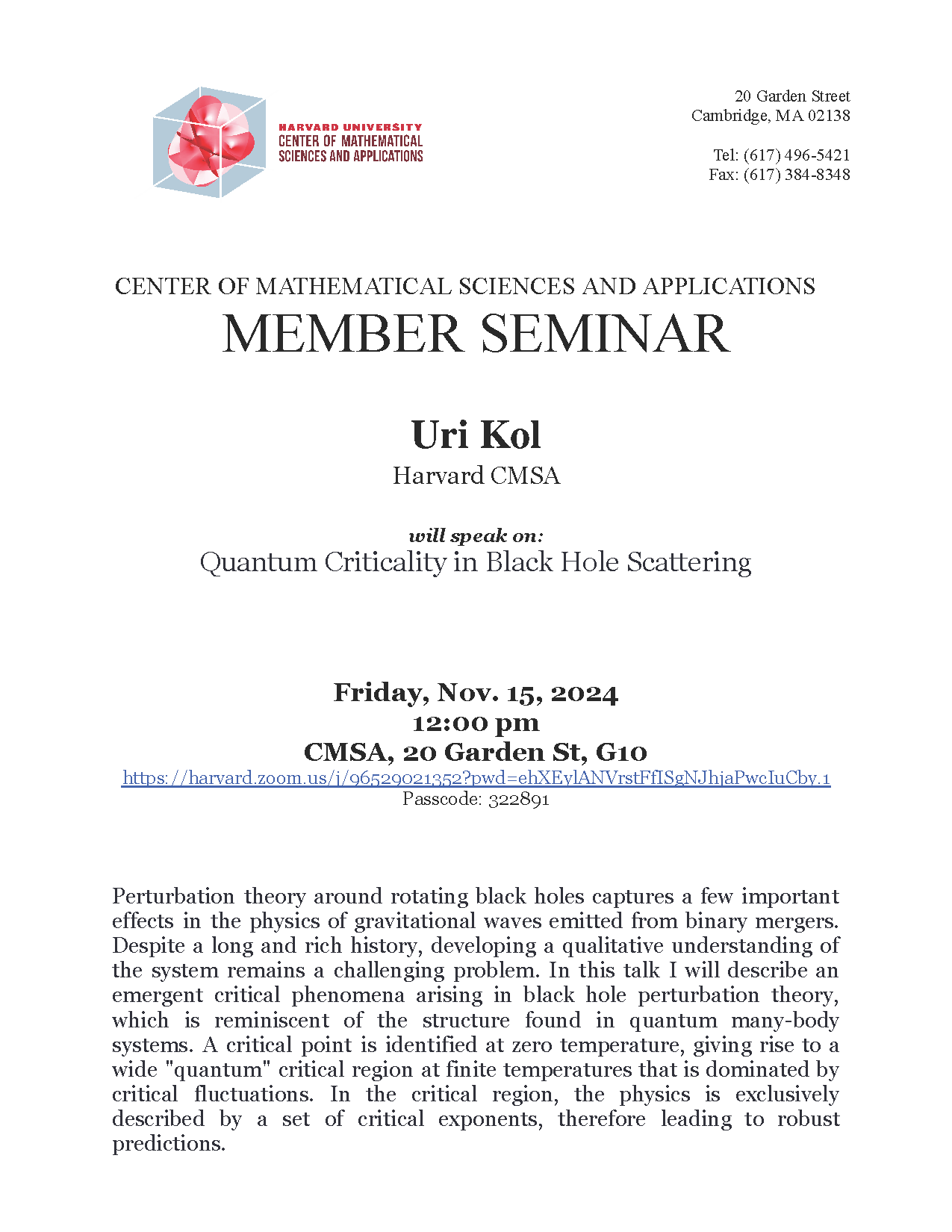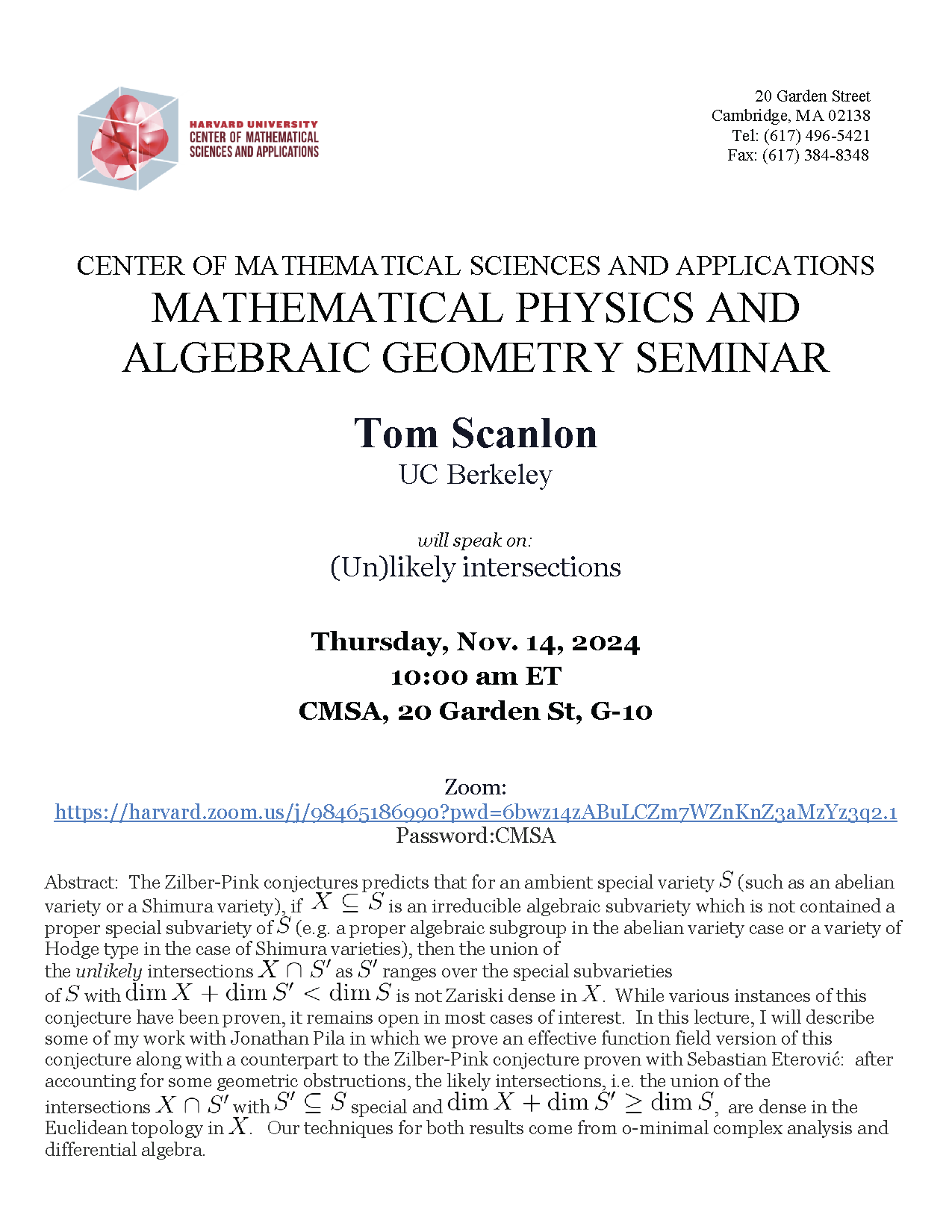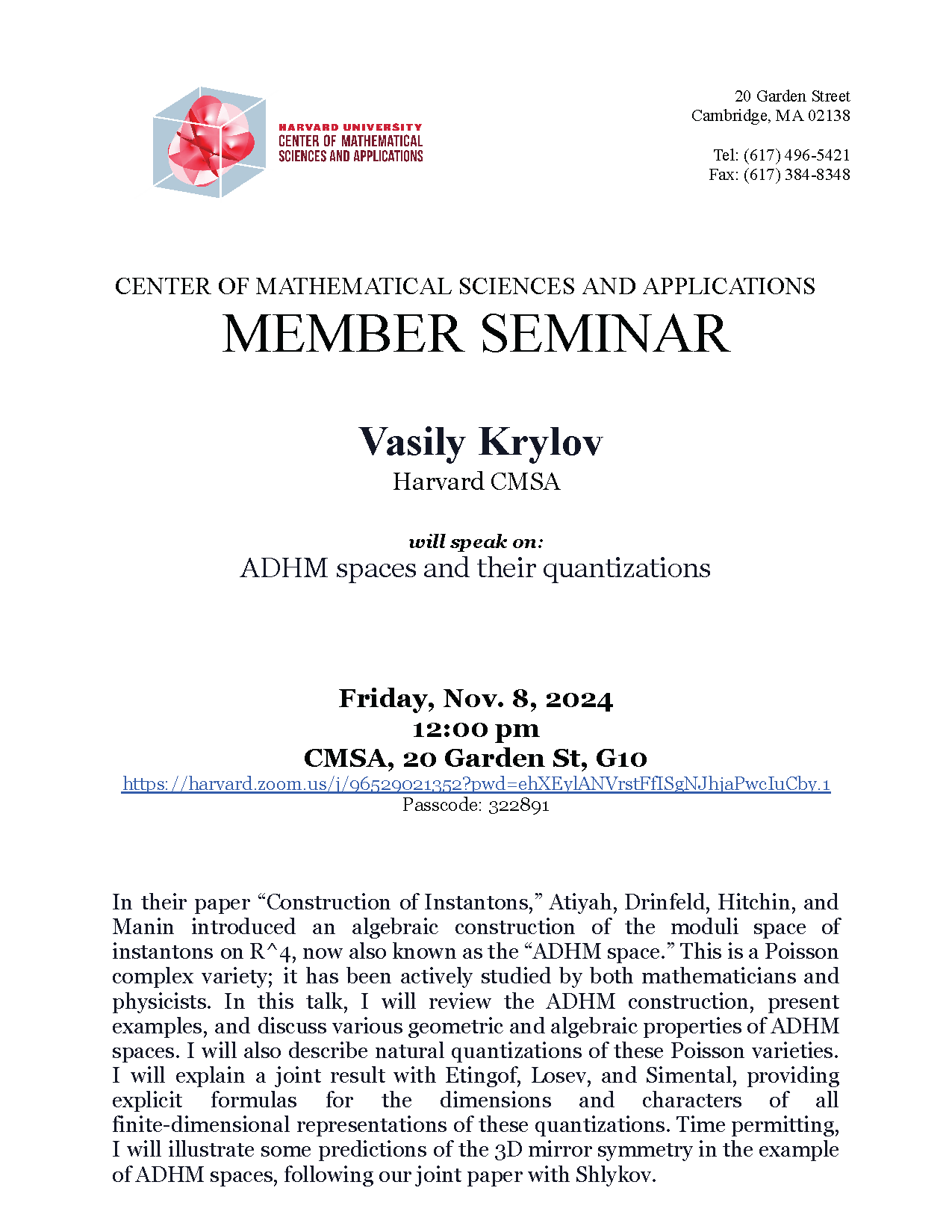
Computability on $\mathbb R$ and other continuum-size structures
CMSA Room G10 CMSA, 20 Garden Street, Cambridge, MA, United StatesColloquium Speaker: Russell Miller, CUNY Title: Computability on $\mathbb R$ and other continuum-size structures Abstract: We begin by recalling the notion of a computable function on the real numbers $\mathbb R$, developed independently by Gregorczyk and Lacombe over sixty years ago. Using this notion, we note that the real numbers that are themselves computable form […]

